Hello lovelies!
Did you know that your skin is your body’s largest organ?
Indeed, it serves as a protective barrier against the environment. Also, your skin regulates temperature and provides sensory information about your environment. However, as you age, your skin undergoes various changes affecting its appearance and functionality.
Consequently, understanding the aging process of the skin is crucial. Indeed, this will help you to develop effective skincare routines and appropriate medical treatments for your skin. Also, you’ll be able to choose the lifestyle that can mitigate the visible and structural impacts of aging.
In this article, I’ll guide you through the biological mechanisms behind skin aging. Afterwards, I’ll go deep into the factors that influence it. Finally, I’ll unveil the strategies you need for maintaining healthy skin throughout life.
The Biology of Aging Skin: What Happens Inside
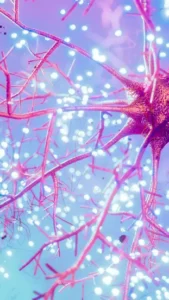
Skin aging is a complex process influenced by intrinsic (internal) and extrinsic (external) factors. On one hand, intrinsic aging is also known as chronological aging. It is the natural aging process determined by genetic and physiological factors.
On the other hand, extrinsic aging results from environmental influences. For instance, those factors include UV radiation from the sun, pollution, smoking, and other poor lifestyle choices.
Intrinsic Aging
Intrinsic aging is inevitable and is largely determined by your genetic predisposition. Key biological processes involved in intrinsic aging include:
Cellular Senescence
As you age, cells gradually lose their ability to divide and function. Therefore, cellular senescence contributes to a decline in the regenerative capacity of the skin.
Reduction in Collagen and Elastin Production
Collagen and elastin are proteins that provide structure and elasticity to the skin. As you age, the production of these proteins decreases. Therefore, this leads to the formation of wrinkles and sagging skin.
Decreased Skin Cell Turnover
The rate at which new skin cells are produced and old cells are shed slows down. And what is the result? A dull and uneven complexion. Ouch!
Reduced Hyaluronic Acid
Hyaluronic acid helps to maintain skin hydration by binding water molecules. Aging reduces the amount of hyaluronic acid in the skin. Consequently, this causes dryness and loss of firmness on your skin.
Changes in Hormonal Levels
Hormonal changes can affect skin thickness, hydration, and elasticity. This is especially true during menopause.
The Role of Genetics in Skin Aging
Genetics play a significant role in determining how your skin ages. Indeed, certain genetic factors influence your skin’s structure, function, and response to environmental stressors.
For example, genetic variations can affect your collagen production and skin thickness. But it also influence your rate of cell turnover. Now, you can’t change your genetic makeup. Let me tell you this is impossible; only God can!
However, understanding your genetic predispositions can help you on many ways. Indeed, this enables you to tailor your skincare and lifestyle choices to better address your own aging concerns.
Extrinsic Aging
Extrinsic aging is largely preventable and is primarily influenced by environmental factors:
UV Radiation
The most significant contributor to extrinsic aging is UV radiation from the sun. UV exposure leads to photoaging. This is characterized by deep wrinkles, pigmentation changes, and loss of skin elasticity.
UV radiation damages the DNA in your skin cells. Thus, it accelerates the breakdown of collagen, and induces the formation of free radicals.
Pollution
Environmental pollutants, such as particulate matter and toxins, penetrate your skin and wreak havoc in your body. Therefore, you’ll get oxidative stress, inflammation, and damage to your skin cells.
Lifestyle Factors
Are you smoking? Do you have a poor diet? Have you lacked sleep lately? Are you constantly stressed out? Then, you must know that all these factors can exacerbate the aging process.
For instance, smoking reduces your blood flow to your skin. Moreover, it deprives your skin of oxygen and essential nutrients. In the same manner, a poor diet lacking in antioxidants can increase oxidative damage in your body.
Inappropriate Skincare Practices
Inadequate or inappropriate skincare practices can damage the skin barrier and accelerate aging. For instance, such bad skincare practices include over-exfoliation or the use of harsh products.
Visible Effects of Aging on Skin: From Wrinkles to Age Spots
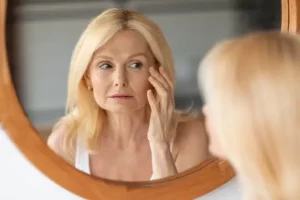
The signs of aging skin are multifaceted and can vary depending on genetic factors and lifestyle. Here are some common signs of skin aging.
Wrinkles and Fine Lines
As a matter of fact, wrinkles and fine lines are the most recognizable signs of aging. They occur due to the breakdown of collagen and elastin fibers, as well as repetitive facial movements.
Sagging Skin
Loss of skin elasticity leads to sagging, particularly around your eyes, jawline, and neck.
Pigmentation Changes
Age spots, a.k.a. liver spots or solar lentigines, are caused by prolonged UV exposure. Uneven skin tone and hyperpigmentation are also common.
Dryness and Rough Texture
Your skin’s ability to retain moisture diminishes with age. Therefore, this leads to dryness, rough texture, and flakiness.
Thinning Skin
Your epidermis (outer layer of the skin) and dermis (inner layer) thin out. Thus, your skin is more fragile and prone to bruising and injury.
Reduced Vascularity
Reduced blood flow can cause your skin to appear paler than usual and less vibrant.
Slowing Down the Skin’s Aging Process: Lifestyle Adjustments
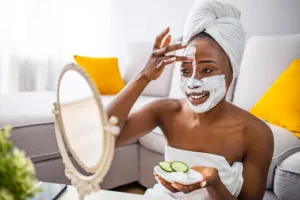
Skin aging is a natural process that you can’t escape. However, you can implement several strategies to maintain healthy and youthful-looking skin. Here are some tips to help you mitigate the effects of skin aging.
Upgrade your skincare routine
Cleanse your skin thoroughly
Gentle cleansing removes dirt, oil, and pollutants without stripping your skin of its natural oils. Avoid harsh soaps and hot water, which can dry out the skin.
Also, always choose cleansers according to your skin type. For instance, gels are adapted to oily and combination skin. On the other hand, cleansing balms and sop-free cleansers will satisfy dry and sensitive skin. It’s up to you!
Moisturize everyday
Daily moisturization helps to maintain your skin hydration and support your skin barrier. Look for products containing hyaluronic acid, glycerin, and ceramides. You can refer to this article where I share tips to choose the right moisturizer for you.
Don’t neglect Sun Protection
Broad-spectrum sunscreen with an SPF of 30 or higher is essential to protect against UV radiation. Moreover, don’t forget to wear protective clothing and seek shade when the sun’s rays are strongest.
In addition, you can have more information about the importance of sunscreen in your skincare routine here and here.
Incorporate Antioxidants in your skincare routine
Don’t hesitate to incorporate antioxidant-rich products, such as vitamin C and E, into your skincare routine. Indeed, they will help you to combat oxidative stress and neutralize free radicals.
Retinoids might be your skin’s best friend
Many studies have proven that retinoids (vitamin A derivatives) could stimulate your collagen production. Also, they increase your cell turnover and reduce the appearance of wrinkles and pigmentation.
However, if you have sensitive skin, I advise you to be careful because retinoids can cause irritation on your skin. If you have any doubt, visit your dermatologist or your beautician for more information.
Exfoliate your skin regularly
Regular exfoliation helps remove dead skin cells and promote cell turnover. Use chemical exfoliants like alpha-hydroxy acids (AHAs) and beta-hydroxy acids (BHAs) for a gentler approach.
Once again, if you have sensitive skin, AHAs and BHAs may not be the best ingredients for you. Therefore, I’d advise you to visit your dermatologist or your beautician to see many kind of exfoliant your skin needs.
Adopt Healthy Lifestyle Choices
Eat a Balanced Diet
A diet rich in antioxidants, vitamins, and minerals supports skin health. Indeed, foods like fruits, vegetables, nuts, and fatty fish provide essential nutrients that help maintain skin structure and function. You can read this article if you want more information about the foods you need for a beautiful skin.
Hydrate your skin from within
Drinking plenty of water keeps the skin hydrated from the inside out. Aim to drink 1.5 to 2 liters (33 to 68 oz.) of water per day.
Avoid Smoking
Smoking accelerates skin aging by reducing blood flow and oxygen to the skin, and by generating harmful free radicals.
Exercise regularly
Physical activity improves your blood circulation while delivering oxygen and nutrients to your skin. Therefore, regular exercise contributes to promote a healthy complexion.
Get your Beauty Sleep
Quality sleep is crucial for skin repair and regeneration. Consequently, aim for 7-9 hours of sleep per night. I invite you to read this article if you want to go further on the benefits of sleep for your beauty.
Stress Management
Chronic stress can negatively impact your skin health. Practice stress-reducing techniques such as mindfulness, meditation, and yoga.
Advanced Skin Care and Anti-Aging Treatments: From Chemical Peels to Lasers
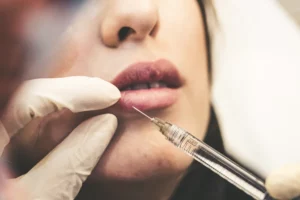
In addition to preventive measures and a consistent skincare routine, you may use various advanced anti-aging treatments. Here are some that can address specific signs of aging.
Chemical Peels
Chemical peels involve applying a solution to the skin that causes the top layers to peel off. Thus, they help to reveal fresher, smoother skin underneath. Also, they can improve the appearance of fine lines, pigmentation, and texture.
Microdermabrasion
This minimally invasive procedure exfoliates the skin using a special device. Thus, microdermabrasion helps to reduce the appearance of fine lines, wrinkles, and age spots.
Laser Therapy
Laser treatments can target various skin concerns by stimulating collagen production and promoting skin regeneration. These skin concerns include wrinkles, pigmentation, and vascular lesions.
Be careful of laser therapy if you are a person of color as it can cause hyperpigmentation you don’t want. I know hat some progress have been made on this procedure, but still…Always make sure that laser therapy won’t be harsh on your skin.
Injectables
Botox and dermal fillers are popular injectable treatments. Botox relaxes facial muscles to reduce the appearance of dynamic wrinkles. On the other hand, fillers add volume to areas like the cheeks and lips, and fill in deep lines.
Honestly, I must say that they are my less favorite advanced anti-aging treatment. Botox and fillers can really mess up your skin. Just look at some celebrities who have faces looking swollen and frozen.
Now, if you want to get these procedures because they are effective, I got you. However, I recommend you choose a reputable doctor/clinic. Don’t try to save money on this type of procedure.
Indeed, I’ve seen and read too many stories of many people looking like ghosts after going to Botox parties (those were very popular in the 2000s) or to confidential doctors. Please don’t do that, I’m begging you!
Microneedling
This procedure uses fine needles to create tiny punctures in the skin, stimulating collagen and elastin production. Microneedling can improve skin texture, firmness, and reduce scars and wrinkles. This procedure is favored by numerous celebrities, including Naomi Campbell.
Radiofrequency and Ultrasound
These technologies use heat to stimulate collagen production and tighten the skin. They are non-invasive and suitable for treating sagging skin and wrinkles.
What’s The Future of Anti-Aging Research?
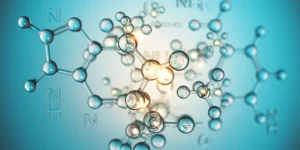
Advancements in understanding the molecular mechanisms of skin aging are paving the way for innovative treatments and interventions. Research in genomics, proteomics, and regenerative medicine holds promise for developing targeted and effective anti-aging therapies.
Stem Cell Therapy
Stem cells have the potential to regenerate damaged skin and promote the growth of new, healthy cells. Clinical trials are exploring the use of stem cell treatments for anti-aging purposes.
Genetic Editing
Techniques like CRISPR-Cas9 are being investigated for their potential to correct genetic defects and improve skin health.
Epigenetics
Epigenetic modifications, which involve changes in gene expression without altering the DNA sequence, are being studied for their role in skin aging and the development of new treatments.
Advanced Delivery Systems
Nanotechnology and other advanced delivery systems are being developed to improve the efficacy and targeting of anti-aging ingredients in skincare products.
Conclusion: why understanding the aging process of the skin is crucial
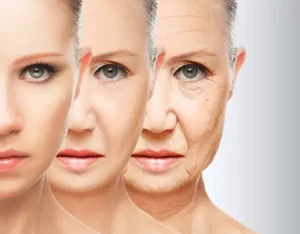
Understanding the aging process of the skin is a multifaceted endeavor that involves appreciating the interplay between intrinsic and extrinsic factors. Indeed, it’s possible to maintain healthier and more youthful-looking skin as you age.
For instance, you can do so by implementing several mesures in your daily routine. Things like preventive measures, a consistent skincare routine, healthy lifestyle choices, and advanced treatments are your best course of action.
Moreover, continuous research and technological advancements promise to further enhance our ability to combat skin aging and improve overall skin health. While you can’t stop the clock, you can certainly influence how gracefully you age. Actually, it’s up to you!
Well, that’s all for today! What do you think of this article about understanding the aging process of the skin? What are the measures you have implemented in your life to prevent your akin from aging? Feel free to share in the comments below!
Take care, lovelies!
Want more content from me? Join my newsletter today and received the latest updates of my website. Also, you’ll receive a wonderful gift in your email!

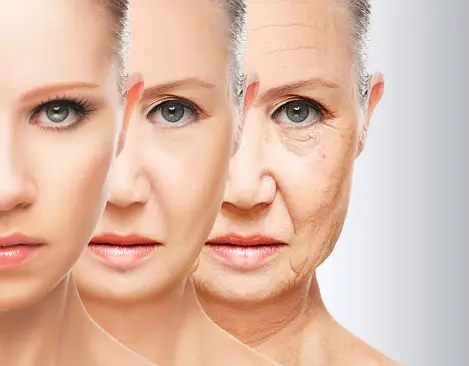
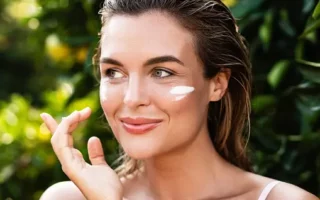
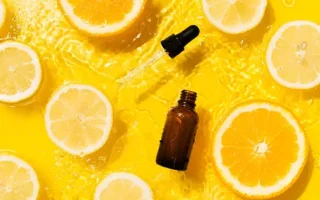

This article is very good. You did an amazing job breaking down the aging process of the skin. I love how you explained the role of collagen and elastin – it really helped me understand why our skin loses elasticity as we age. Your point about the importance of a good skincare routine to help maintain skin health was spot-on. I’m curious, do you have any personal favorite products or brands that you recommend for anti-aging? And what are your thoughts on the effectiveness of natural remedies versus commercial skincare products?
Hello Bob, thank you for your comment! I do have favorite products but I’ll talk about them in another post! So stay tuned!
There is certainly a lot one can do to slow down the aging process, but as you say it is inevitable. The idea though is to try and age as gracefully as possible.
I didn’t realize that there were so many different procedures one could choose from to help slow the aging process. I prefer looking after myself and having a good skincare routine. If your skin is well nourished from the inside and the outside, then somehow the wrinkles look a lot softer. The only other procedure I have tried is a chemical peel, but I didn’t like it and my skin felt very sensitive afterwards for a few weeks.
Wow thanks for sharing !
Your post is very informative on the aging process. I am 57 and have been thinking about the aging process. This really explains alot about the process our bodies go through. Ageing is the inevitable process all of us will be going through in our lives. I myself after reading your post have a better understanding. I look in the mirror and see the changes on my face and wonder about these spots im getting among other things. Thanks for the infol
You’re welcome !
That was a very comprehensive overview on the aging process, from the causes to what you can do to reduce the effect of aging on the body. I liked how you mentioned there is always something you can change (like diet and exercise) and what you can’t change (the genetics — maybe right now, who knows in the future?) I can say from experience that using the creams and lotions after washing my hands and after showering can help the skin stay moisturized.
Thanks for your comment !
Hey thank you for this post, it certainly was interesting to learn how the skin develops and the process of it.
I was aware of that apparently pollution can effect the skins aging process but not sure how however your explanation clearly showed how. I enjoyed reading this information especially since it was easy to understand and laid out in clear paragraphs.
Thanks again and have a great day!
You’re welcome !
Thank you for this informative article!
I found your insights on the aging process of the skin to be really enlightening. It’s fascinating how factors like sun exposure and lifestyle choices can significantly impact our skin’s health over time.
From my experience, incorporating a consistent skincare routine with antioxidants has made a noticeable difference in how my skin feels and looks. I’m curious—what are your thoughts on the effectiveness of different ingredients, like retinol or hyaluronic acid, in combating signs of aging?
Also, do you have any tips for maintaining skin hydration as we age? I’d love to hear more about your recommendations!
Thanks for your comment ! Rétinol IS very effective as well as hyaluronic acid. Drink more water and eat watery foods to keep your internal hydration. Cheers !
Hi there
I like how your article offers a clear and insightful explanation of how various factors, such as collagen loss and environmental influences, contribute to visible signs of aging. It’s refreshing to see the emphasis on both internal and external factors, encouraging readers to consider holistic skincare routines. The suggestions for maintaining skin health are practical and easy to implement, making this a valuable read for anyone looking to preserve their youthful glow.
What specific lifestyle changes do you think have the most significant impact on slowing down the skin’s aging process?
Hello thanks for your comment ! For me the most significant lifestyle changes are your diet and your skincare routine
Elodie, I think it’s great that your compassion for beauty can be displayed here. Your inner beauty shines through your articles and will resonate with your audience. Beauty is one niche that is very well displayed in affiliate marketing, however I believe that you have an approach that will corner the market if you stay persistent. I wish you the best.
Thanks Walter !